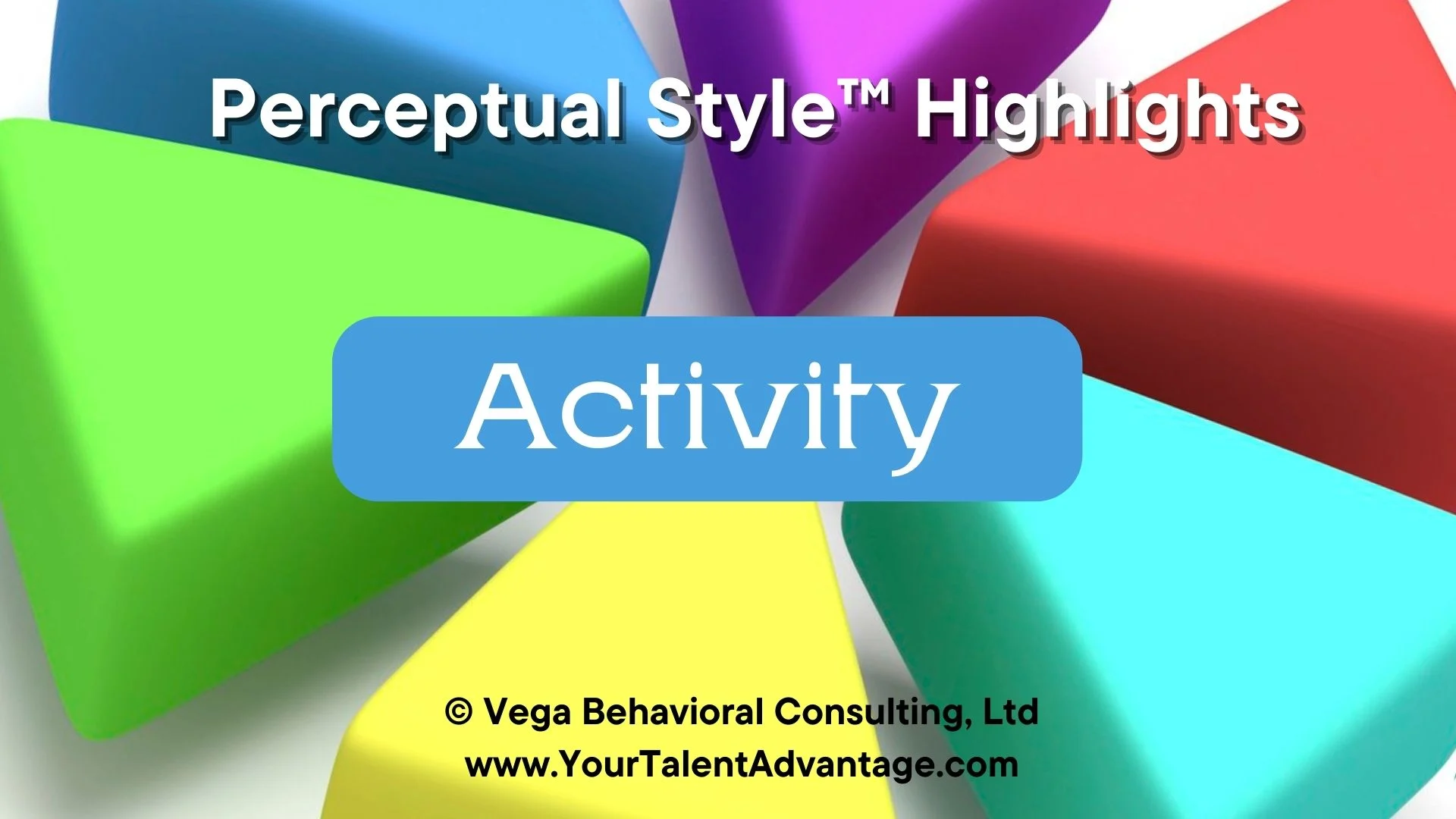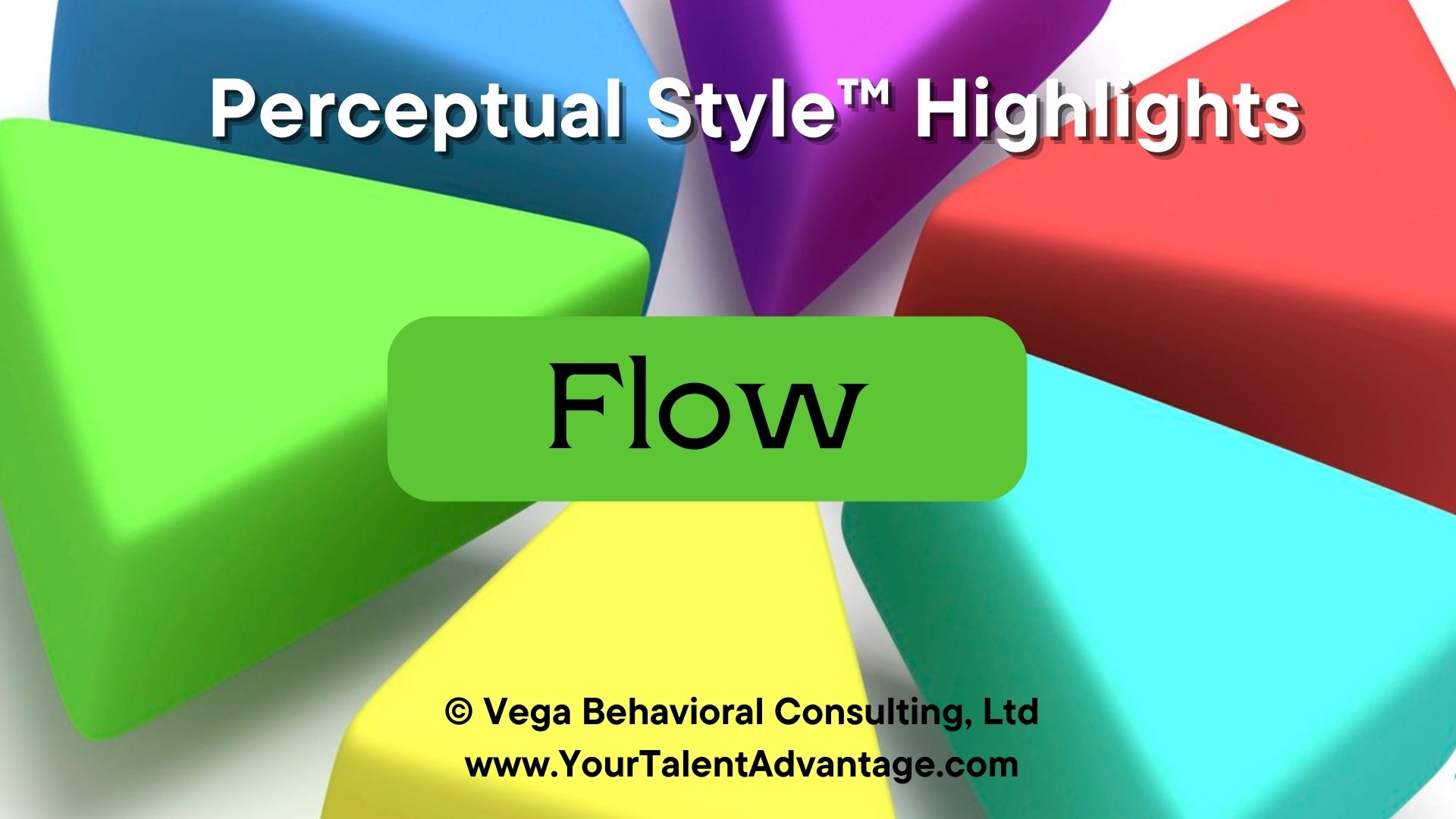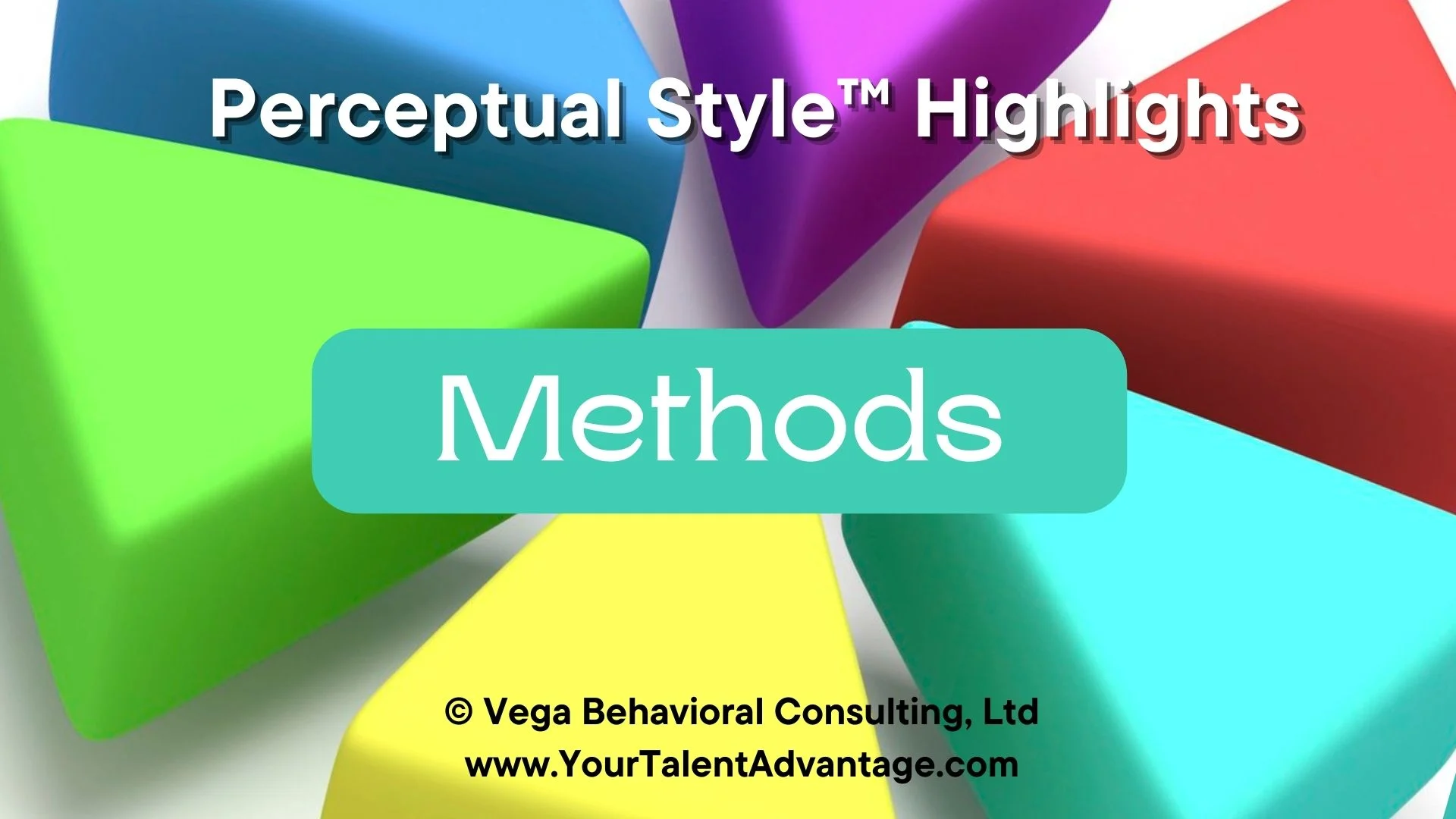
Activity Perceptual Style™ and Conflict
Embracing Conflict as Reality
Conflict is part of life — how you handle it makes all the difference. Disagreements happen — at work, at home, with family, friends, and strangers. Some flare up quickly and burn out, while others simmer under the surface. But every conflict, big or small, offers a choice: to escalate, avoid, or engage with intention.
That’s where Perceptual Stylescomes in. Your style shapes the way you instinctively interpret tension and respond under pressure. If your style is Activityyou bring momentum, engagement, and the drive to do something about the issue. You’re not one to sit back and stew — you want resolution, and you want it now.

Why Understanding Conflict Matters
Conflict isn’t just about clashing opinions; it’s about how we connect and communicate when faced with differing perspectives. How you handle conflict can:
-
Strengthen trust through constructive dialogue.
-
Build deeper mutual understanding.
-
Spark creative solutions and collaboration.
-
Foster emotional resilience and personal growth.
Poorly managed conflict can damage relationships and escalate tension. But when you understand your Activity,you gain the awareness to channel your energy and action orientation into resolving conflict in ways that deepen connection and move things forward.
How Activity People Experience Conflict
With the Activity Perceptual Style,you don’t see conflict as a problem — you see it as a signal to act. To you, tension between people isn’t something to avoid — it’s something to address, resolve, and move past.
You thrive when you can:
-
Spot tension early and jump in before it builds into something bigger.
-
Use humor, candor, and connection to keep the conversation productive.
-
Rally people around a solution that gets things moving forward again.
But here’s the thing: conflict that lingers or gets bogged down in analysis wears on you. You need open dialogue and action — not avoidance or endless rehashing.


Why Understanding Your Perceptual Style Matters
Your approach to conflict is a strength — bold, proactive, and relational. But without awareness of how your style plays out under pressure, you may act too quickly, overlook important details, or misread how others are experiencing the tension.
When you understand your Activity Perceptual Style,you can:
-
Navigate conflict with energy, confidence, and resilience.
-
Spot friction early and respond in ways that build connection rather than escalate tension.
-
Guide resolution efforts with clarity, creativity, and authentic care.
Awareness gives you the power to turn conflict into forward motion — keeping relationships strong and conversations productive, even when things get tough.
Take Action: Discover Your Perceptual Style
Stop struggling with conflict and start thriving in your interactions. The Perceptual Style Assessment™reveals how you naturally respond in moments of disagreement — and gives you practical strategies to resolve conflict with clarity, confidence, and emotional insight.
When you complete the assessment, you’ll receive:
-
A 45-page Celebrate You!action guide tailored to the Activity Perceptual Style.
-
Insights into your conflict-resolution strengths and how to apply them effectively.
-
Tools to navigate tough conversations with clarity, empathy, and forward momentum.
Don’t wait — unlock your power to transform conflict into connection!

Explore the Six Perceptual Styles and Conflict
Curious about how different Perceptual Stylesapproach conflict? Explore below for insights into each unique style:
Understanding your style is just the beginning. Recognizing how others experience conflict empowers you to turn tension into trust, disagreement into dialogue, and challenges into lasting solutions.
Frequently Asked Questions about Perceptual Style and Conflict
What does it mean to have the Activity Perceptual Style™?
You experience life as dynamic, experience-rich, and people-powered. You learn by doing, build energy through interaction and movement, and spot connections others might overlook. You thrive when you’re engaged and in motion, not watching from the sidelines.
What are some of the natural strengths of Activity?
You energize people and situations. You build rapport quickly, get things moving, coordinate moving parts, and bring ideas to life in real time. You instinctively read the room and use humor and storytelling to connect and inspire.
How does the Activity style show up in Conflict?
You tend to diffuse tension through humor, openness, and reframing. You prefer a quick resolution , followed by reflection on what happened and how to prevent a repeat.
What are a few common blind spots — and how can I manage them?
Routine and repetition can feel tedious. You can over-explain through context or drift to the next new thing before finishing the last. Try creating lightweight structure—simple checklists, quick recaps, or completion checkpoints—to keep your enthusiasm focused without losing momentum.
How can understanding my Activity strengths help me thrive?
Knowing your Perceptual Style helps you focus your natural energy where it matters most. For example, you can choose lively, people-focused environments, set short-term goals to keep momentum, and invite feedback to stay connected and on course. Awareness opens the door to even more creative, meaningful progress.
Can my Perceptual Style change over time?
No — your Perceptual Style is innate. What does evolve is how you apply it. As you grow in awareness and intention, you’ll expand how—and where—you use your natural strengths.





